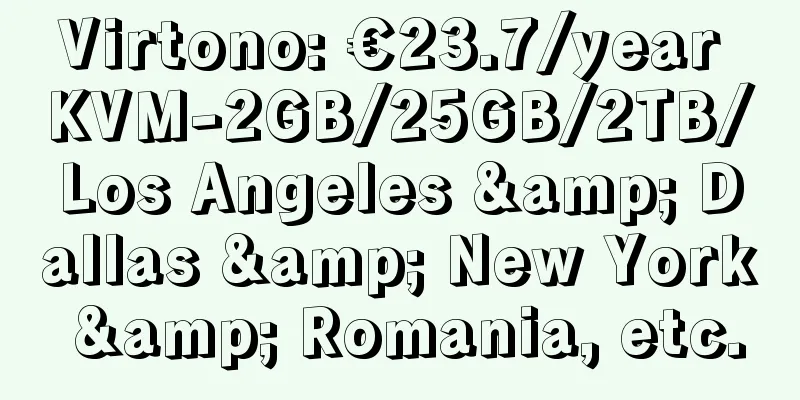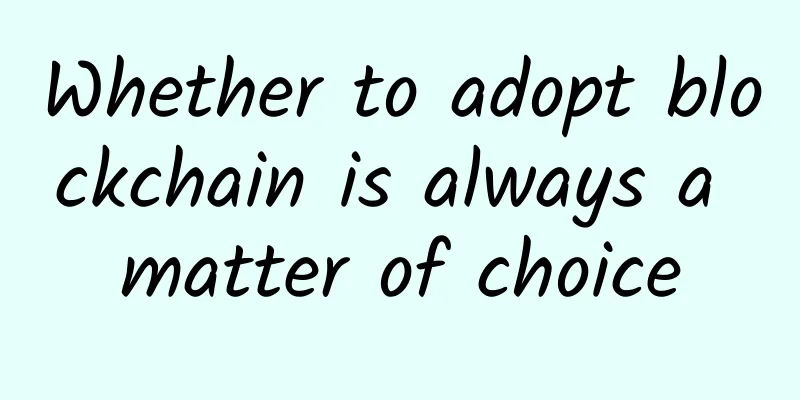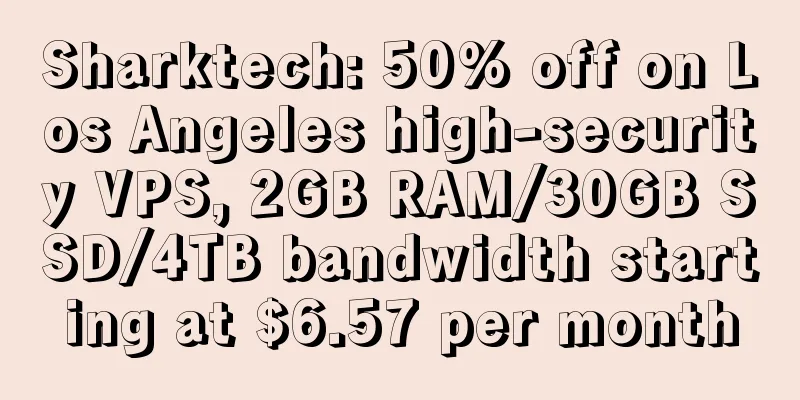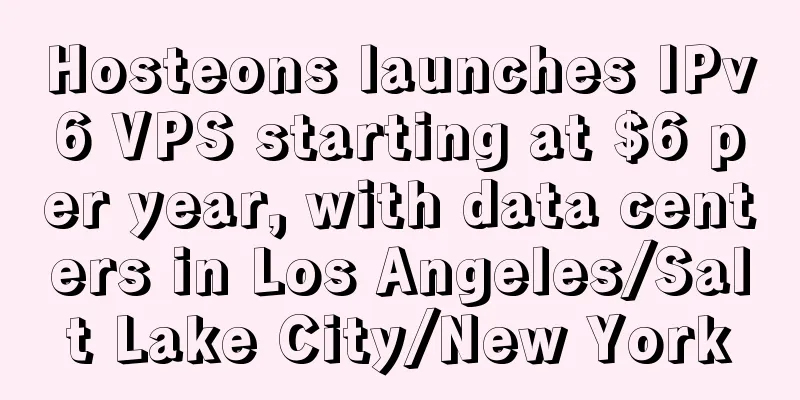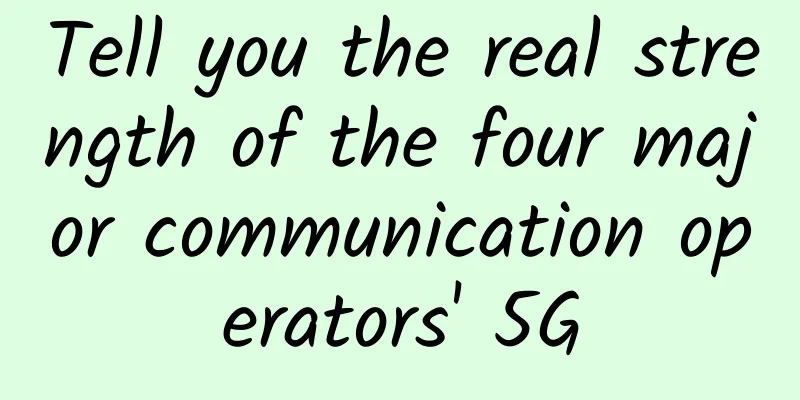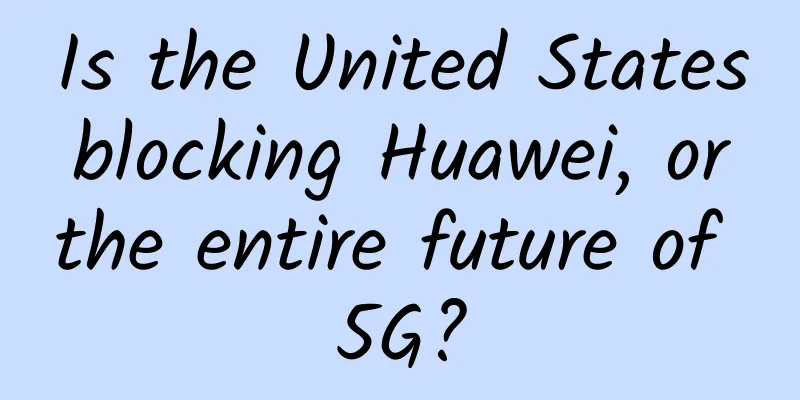Top 10 acquisitions that changed the Internet industry in 2016
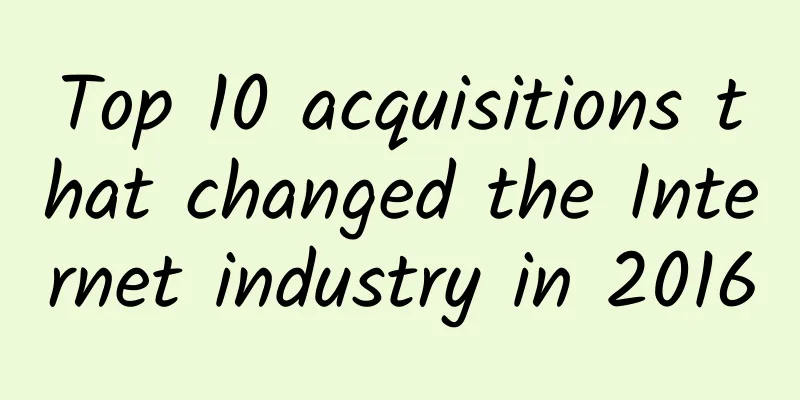
|
【51CTO.com Quick Translation】 In the Internet industry, there seems to be a large number of mergers and acquisitions every year. It turns out that 2016 is no exception. Here are the top ten acquisitions that are most likely to change the industry rules, because they are all expected to push the acquiring company into a whole new market.
Cisco joins hands with Jasper Prior to the $1.4 billion acquisition of Jasper, Cisco's IoT strategy was centered around connecting devices. Connectivity is undoubtedly important, but it is only a small part of the IoT landscape. Jasper brings Cisco a market-leading IoT platform that is currently used by many large companies, such as Ford, GM, and Boston Scientific. Jasper's cloud-based platform also provides automation and analytics capabilities, making it an important component of scaling IoT solutions. Cisco has been one of the main advocates of the Internet of Things, and now it finally has the platform to turn this vision into reality. Symantec acquires Blue Coat In June, Symantec acquired Blue Coat for $4.65 billion. The combined company will create a security vendor with annual revenue of more than $4 billion and a broad portfolio of products that are fully aligned with the digital trend. The acquisition of Blue Coat makes Symantec a major force in cloud and web security, an area where it had previously been lackluster. The acquisition also brought in Blue Coat CEO Greg Clark, who has been named Symantec CEO and will lead the company into its next phase of growth. Brocade acquires Ruckus Prior to the $1.2 billion acquisition of Ruckus Wireless, Brocade's wireless strategy had been to be an OEM for a number of different vendors, including Meru, Motorola, and most recently Aruba. While OEMs allow Brocade to check boxes if customers want wireless technology, it prevents Brocade from controlling its own destiny by doing what it does best: innovation. Ruckus' value proposition is similar to Brocade's in that its differentiator is superior technology, and some real 1+1=3 potential (enabled by workflow automation and software that defines the access edge). Verizon woos Fleetmatics Ever wondered if Verizon is serious about IoT? In August, the company showed everyone how serious it is about IoT by spending more than $2.4 billion to acquire Fleetmatics, a big player in fleet and mobile workforce management solutions. The Dublin, Ireland-based company instantly made Verizon a big player in the IoT market, providing fleet operators with vehicle location, fuel usage, speed, mileage, and other information to help reduce operating costs. Expect to see Verizon roll out other IoT solutions for verticals using its SaaS-based platform. Cavium Acquires QLogic Chipmaker Cavium makes silicon that is used primarily by networking and security vendors. A flurry of mergers and acquisitions in those markets has reduced the number of customers to sell to. In addition, competition from companies like Broadcom, Intel, and Marvell has increased, so supply is high and demand is low. The $1.36 billion acquisition of QLogic is transformative because it pushes Cavium into the storage industry. The acquisition doubles Cavium's size and diversifies its business, making it less vulnerable to the ups and downs of the networking industry. Extreme focuses on Zebra's wireless LAN business The $55 million acquisition is relatively small in the network industry, but it does have huge potential for Extreme Networks. Zebra's technology is widely deployed in the transportation and logistics market, with big-name customers such as FedEx and Walmart. Extreme currently has low penetration in these vertical markets, and it can use its existing customer base to grow its wired network and wireless analysis business. A10 adds Appcito The cloud will make application delivery controllers (ADCs) irrelevant! These are some of the noises coming out of the ADC market today. Similar warnings were issued to vendors in this space when virtualization became mainstream. In fact, the growth of workloads (physical, virtual, or now in the cloud) is a good thing for ADCs because customers need better control over how traffic goes in and out, as well as improved security. The key to meeting the challenges of application delivery in the cloud is to have a product designed for this purpose, because users simply cannot "translate" an ADC and expect it to work the same way. With A10's acquisition of Appcito, it has the world's first cloud-native ADC, which is delivered as a SaaS. Vonage Acquires Nexmo CEO Alan Masarek’s vision for Vonage was to transform the company from a small, consumer VoIP provider into a global powerhouse in cloud communications. He began this journey by acquiring a number of Broadsoft-based Unified Communications as a Service (UCaaS) providers, and later acquired gUnify to connect communications with business applications. In August 2016, he made a big bet on the emerging Communications Platform as a Service (CPaaS) market: Vonage spent $230 million to acquire Nexmo. CPaaS is an essential part of digital transformation because it enables many companies to buy communications building blocks, such as voice and messaging, to build omnichannel mobile applications. The combined “VoNexmo” is uniquely positioned to meet the communications requirements of any customer, no matter how they want to use it. Broadcom acquires Brocade Broadcom's $5.9 billion acquisition of Brocade is similar in vision to Cavium's acquisition of QLogic, but on a much larger scale. Brocade is a bit more complex than QLogic, as it is the clear market leader in storage networking, but it also has a best-in-class IP networking division. As a dominant silicon provider in the networking industry, Broadcom can leverage Brocade to become a heavyweight in storage networking. As part of the deal, Brocade's IP division may be sold off, including Ruckus. We'll see how this deal pans out in 2017. IBM acquires Weather Company At first glance, one might ask: what the heck is going on here? One of the biggest IT vendors just acquired the website I browsed to see how cold it is in Oymyakon, Russia, the coldest city on Earth? Does this move make any sense? Absolutely, because IBM now owns all of the weather company’s data. All the big players in AI, like Google and Microsoft, are collecting data to improve their respective forecasting capabilities. IBM has already said it will use the data to power its Watson IoT platform. Customers can use their own data (from sensors or other data sources) to help make better decisions. Weather also affects every aspect of our lives, so it can be said that IBM has acquired a unique asset that gives it a differentiating IoT solution. Original title: 10 game changing networking acquisitions of 2016 By Zeus Kerravala [Translated by 51CTO. Please indicate the original translator and source as 51CTO.com when reprinting on partner sites] |
<<: TD-LTE wins award: Guarding 5G and leading the world
>>: Ruijie SDN Open Network Platform ONP won the "2016 Most Innovative Award"
Recommend
What is the function of each layer in the computer network layered model?
1. Layering of computer networks In the computer ...
GSA identifies 4G/5G private network deployments in 40 countries
London, UK, May 17, 2021 - The Global Mobile Supp...
From "Integration" to "Huawei Inside", Huawei builds a new ecosystem in the intelligent era
[51CTO.com original article] [Fuzhou, China, Marc...
You clearly have a 4G phone, but the operator still wants you to sign up for a 5G package?
According to data from the China Academy of Infor...
HostingViet: 35% off for annual VPS/virtual hosting in Vietnam, 35% off for new purchases of Email Server
HostingViet's April promotion will end in two...
RAKsmart Hong Kong VPS simple test, three network direct connection/Telecom CN2
A few days ago, we shared information about RAKsm...
"Disruption" or "Pie in the sky", what is the charm of OpenRAN?
OpenRAN (Open Radio Access Network) seems to be v...
Current limiting is never an easy task!
[[354146]] This article is reprinted from the WeC...
66 Cloud's 4th anniversary, 20% off monthly VPS and 40% off annual VPS, Hong Kong CMI/US CN2 GIA/AS9929/Japan Softbank, etc.
666clouds recently launched an event for New Year...
There will be a chance in 2020: Why is it so difficult to port your number? !
Number portability is an urgent need Number porta...
The future is here. How can operators accelerate innovation in blockchain applications?
At present, there are more than 1,400 blockchain ...
RAKsmart's year-end discount upgrade, G-port unlimited servers reduced to $99 per month, San Jose servers sold at $30 per month
A few days ago, RAKsmart released a notice of yea...
Why are 5G chips so expensive?
Recently, MediaTek officially announced that it w...
5G and 6G networks will empower emergency responders and smart city projects, researchers say
While 5G and 6G networks could help first respond...

